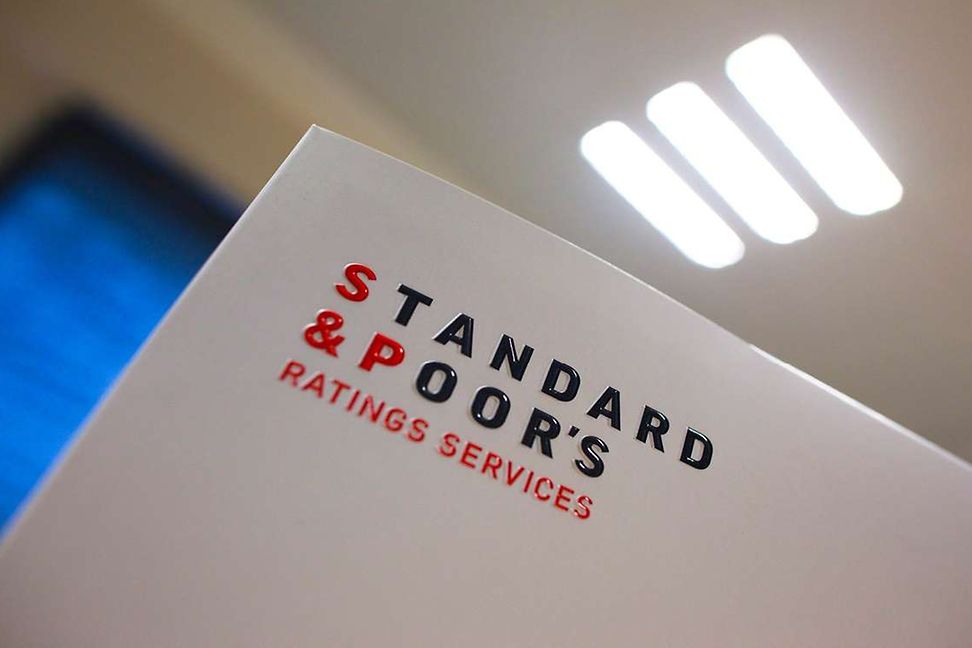在此处更改您的语言和 LGT 位置。
私人客戶的數碼平台
登錄 LGT SmartBanking
金融中介機構的數碼平台
登錄 LGT SmartBanking Pro
解答常見問題 (FAQ)
LGT SmartBanking 幫助
解答常見問題 (FAQ)
LGT SmartBanking Pro 幫助
It recently happened to Tesla, and Lufthansa experienced it during the Coronavirus crisis: both were removed from a stock index. Does such a removal impact just a company’s image or does it also have financial repercussions?

Tesla is no stranger to negative headlines, be it due to allegations of poor working conditions or greenwashing. But the accusations, whether they are the product of envy or justified criticism, seem to roll off it like water off a duck’s back.
A few days ago, the people behind the Standard & Poor’s 500 ESG stock index kicked the US-based company out of the index. They justified the move in a blog post, stating that other companies had caught up with Tesla in terms of ESG, and in some cases surpassed it. As a result, the Californian company was excluded from the index. The reaction of the company’s founder Elon Musk was prompt and clear: he was fuming, and of course shared that on Twitter.

The removal of a company’s shares from a stock index is something that happens time and time again. Pfizer, for example, stopped being listed in the Dow Jones in August 2020. A few months prior to that, Lufthansa was ousted from Germany’s leading index, the DAX.
But what are the economic consequences of such a move for a company – and what does it mean for investors who are invested in the company? We talk to David Wolf, Head Research Content & Publications, LGT Private Banking Europe, to find out.
Question: If a listed company has made it into a stock index, then surely that is a sign of success; it must mean that it has achieved a certain size or importance in a specific sector, market or country?
Being included in an index can definitely be seen as an achievement. That’s why it’s also an event that is celebrated with a lot of publicity. The message this sends to the world and the financial markets is important. For certain niche companies, it may even be the first time they have received widespread media attention. An inclusion of this kind means a company has achieved a certain level of importance, balance sheet size and stability. The inclusion process is different for each index and is based on different criteria.
Question: So is inclusion in a stock index always a big image boost for companies that are listed on the stock exchange?
Yes. Image and prestige always play a role, and also have real value. This symbolic validation for the company, this perception from the outside of being profitable and successful, results in an improved reputation and greater attention. This has tangible advantages: the company increasingly comes into the focus of investors and analysts and subsequently enjoys a broader investor base.
The reason for Tesla’s exclusion from Standard & Poor’s stock index was poor ESG scores compared to other companies of the industry. The rating agency rated Tesla’s performance in terms of environmental, social and governance factors.
Question: Tesla’s share price fell significantly after the announcement of its exclusion from the S&P 500 ESG. In other words, beyond image and publicity, does a removal from a stock index also have tangible financial consequences? If so, what are they?
One of the strongest effects of being included in an index comes from the investments made by the index funds or ETFs. They buy all the shares in the index, driving up the share price of a new company that has been added to the index.
The opposite happens when a company is removed from the index: the funds sell the stock, which causes the stock price to fall, at least in the short term. The amount can vary greatly depending on the stock, but both inclusions and exclusions have a one-off effect on the share price. Historically and on average, this one-off effect disappears again after a few months and is not able to buoy or negatively impact the price of a stock in the long term.
In the case of Tesla, the sudden drop in the share price quickly dissipated again. This may be due in part to the fact that nothing fundamentally changed at the company at that time other than that it had simply been overtaken by other companies in terms of ESG metrics.
But for some companies, the effects of an exclusion can have a longer impact on their share price. Whether or not this is the case depends heavily on the index itself, its focus, selection criteria and the reasoning behind the exclusion, as well as the actual company performance.
Question: What does an exclusion from an index mean for someone who is invested in the company?
As mentioned, in the medium term, a short-term price drop as a result of an index exclusion is usually relativized. Often, it’s certain metrics that tip the scales. These can be comparatively weak ESG efforts or a slowly declining market capitalization, for example.

As long as the company has a solid business model, strong fundamentals and sustainable financing, neither the dividend policy nor the mid- to long-term performance should be negatively impacted. My personal impression is that we all like to get caught up in the daily noise of the sensationalist press, but for the long-term investor, such events are in reality just smoke and mirrors. They should therefore keep a cool head.
And by the way, such exclusions are not uncommon, it’s just that the media coverage is normally less extensive. At the same time that Tesla was excluded, 34 other companies were also removed from the list of the S&P 500 ESG Index – and we’re not just talking about little-known companies.
Question: Are investors who hold an excluded share in their portfolio through an index fund or other equity fund also affected?
A fund is usually an investment that is diversified across many individual instruments. The impact of individual securities should therefore not be something that keeps investors up at night. The aim of index funds is to track the performance of an index as cost-effectively as possible. All changes in the index are carried out without any action on the part of investors.
Of course, they are also affected by the changes in the index, since they no longer benefit from the price development of the stock that has been removed. At the same time, however, they can also benefit from the performance of the stock that has just been added. But ultimately, before buying such an investment, the investor must always be aware that the composition can change at any time, because the goal of an investment in an index fund is diversification, and expressly not to have exposure to a single company.
A dynamic that investors pay less attention to is cluster risk. This phenomenon is a result of the great popularity of index funds, and especially ETFs. Originally, stock indices were created as a way to easily measure the state of the market using a single metric.
ETF is the abbreviation of the term “exchange traded fund”. In the vast majority of cases, the term ETF is used for passively managed index funds. This means that the securities contained in the fund are not actively managed by a fund manager. Instead, an index fund replicates the composition and performance of a securities index.
The history of an index makes it possible to draw conclusions about market reactions. This, in turn, can help investors make investment decisions in the present. With today’s index funds, however, investors invest less in the breadth offered by the market, and are instead more concentrated in the investments of the index – in a way that is much more efficient than before.
This has consequences for the price behavior of the stocks included in the index. Due to the high liquidity and good tradability of ETFs, the prices of shares included in stock indexes are much more volatile. One example was seen during the stock market crash arising from the Coronavirus crisis in the spring of 2020, when trading volumes for ETFs reached new highs and there was also unusually high volatility. But in this case, too, investors had to remain calm, because the storm eventually subsided.
Question: If financial markets calm down in the future, can we expect to see fewer changes in the composition of stock indices?
To answer this question, one would need to have one of those popular, but unfortunately not commercially available, crystal balls. Depending on the index and the index provider, the changes take place at different intervals and to different extents. In the case of the Standard & Poor’s 500 ESG, the rebalancing takes place quarterly, at the beginning of each quarter. And even just this one index has numerous reasons for exclusion, as can be seen from its methodology. If you study it, you will quickly realize that only a few of these reasons relate to general market volatility.
Incidentally, the index providers’ requirements are not set in stone, but change over time. In 2017, for example, discussions emerged about the increasing importance of corporate governance. Various index providers reacted by no longer including companies that deny certain shareholders their voting rights. This also reflects the fact that changes in the composition of indices will continue to be nothing earth-shattering in the future. Ultimately, they are just a reflection of the market.